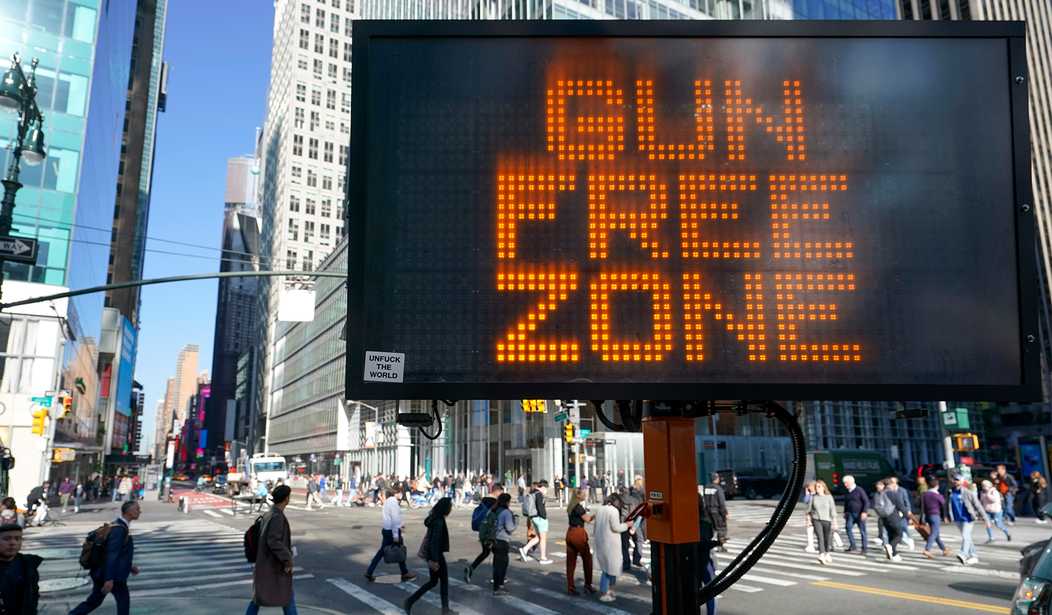Like millions of Americans, Mel Gibson has a criminal record that disqualifies him from legally owning a gun. Unlike nearly all of those people, the movie star, whom President Donald Trump has designated as one of his three "ambassadors" to Hollywood, will be relieved of that disability, thanks to a recent decision by Attorney General Pam Bondi that also covers nine less famous individuals.
Although Gibson's inclusion on that list smacks of political favoritism, Bondi's move is part of a long overdue effort to restore the Second Amendment rights of "prohibited persons" who pose no threat to public safety. The Gibson controversy should not overshadow a much bigger scandal: the unjust, constitutionally dubious policy that permanently disarms Americans based on a wide range of criminal convictions, including many that do not involve the use or threat of force.
Gibson lost the right to possess firearms in 2011, when he pleaded no contest to a misdemeanor involving domestic violence: an assault on his girlfriend. Another provision of the same federal law sweeps much more broadly, covering anyone convicted of a crime punishable by more than a year of incarceration, regardless of the sentence that was actually imposed, whether or not the offense involved violence, and no matter how long ago it happened.
To give you a sense of how capacious that category is, it includes the president himself, who last year was convicted of 34 state felonies involving falsification of business records. Because of those convictions, which did not result in any formal punishment, a man entrusted with control of the nation's vast military might, including its nuclear weapons, is not allowed to own a gun.
No matter what you think about the underlying case, that situation makes no sense as a matter of public safety. It is likewise hard to see the logic of taking away someone's Second Amendment rights because he grew or sold marijuana, underreported his income to obtain food stamps, misrepresented the thickness of shoe inserts, tampered with fishing gear, inadvertently transported a box of ammunition into Mexico, or committed any of the myriad other nonviolent offenses that trigger this disability.
Recommended
Even the American Civil Liberties Union, which is not known for defending the Second Amendment, sees a problem with this "extraordinarily broad statute," which "does not target dangerousness or propensity to commit violence." It says "there is no historical precedent for such a broad ban on firearm possession."
After casting that absurdly wide net, Congress approved a process that could eventually allow people to wriggle free. It authorized the attorney general to restore a prohibited person's gun rights when "the circumstances regarding the disability, and the applicant's record and reputation, are such that the applicant will not be likely to act in a manner dangerous to public safety."
That process, however, was delegated to the Bureau of Alcohol, Tobacco, Firearms and Explosives, which Congress has prohibited from considering such applications since 1992. Because of that spending rider, prohibited persons had no recourse unless they managed to obtain a pardon that restored their gun rights.
Bondi is trying to revive the remedy that Congress offered before making it impossible to obtain. An interim final rule that took effect last month rescinds the ATF's authority in this area, returning it to the attorney general.
Bondi says that move is consistent with a Feb. 7 presidential order that instructed her to "assess any ongoing infringements" of Second Amendment rights stemming from "actions of executive departments and agencies." She notes that the "confusing" lack of a remedy for prohibited persons "has taken on greater significance given developments in Second Amendment jurisprudence since 1992."
Those developments cast doubt on the constitutionality of defining prohibited persons so broadly that they include millions of Americans with no history of violence. Challenges to those restrictions, which have been successful in several cases involving people convicted of nonviolent crimes, may ultimately force Congress to take a narrower approach.
Jacob Sullum is a senior editor at Reason magazine. Follow him on Twitter: @jacobsullum.

























Join the conversation as a VIP Member